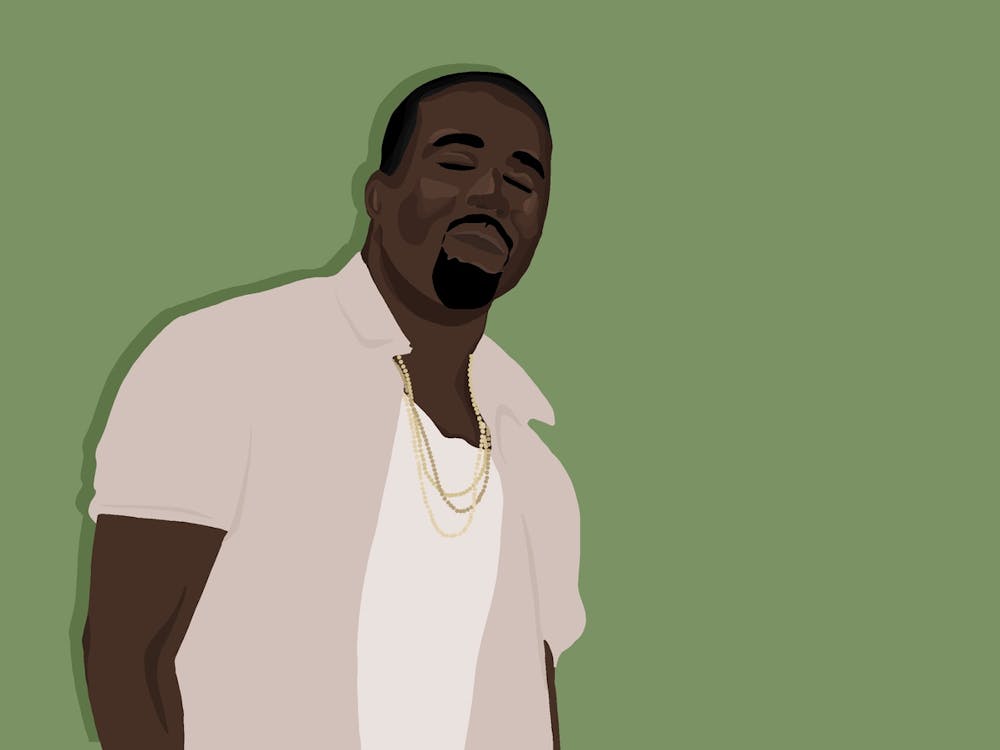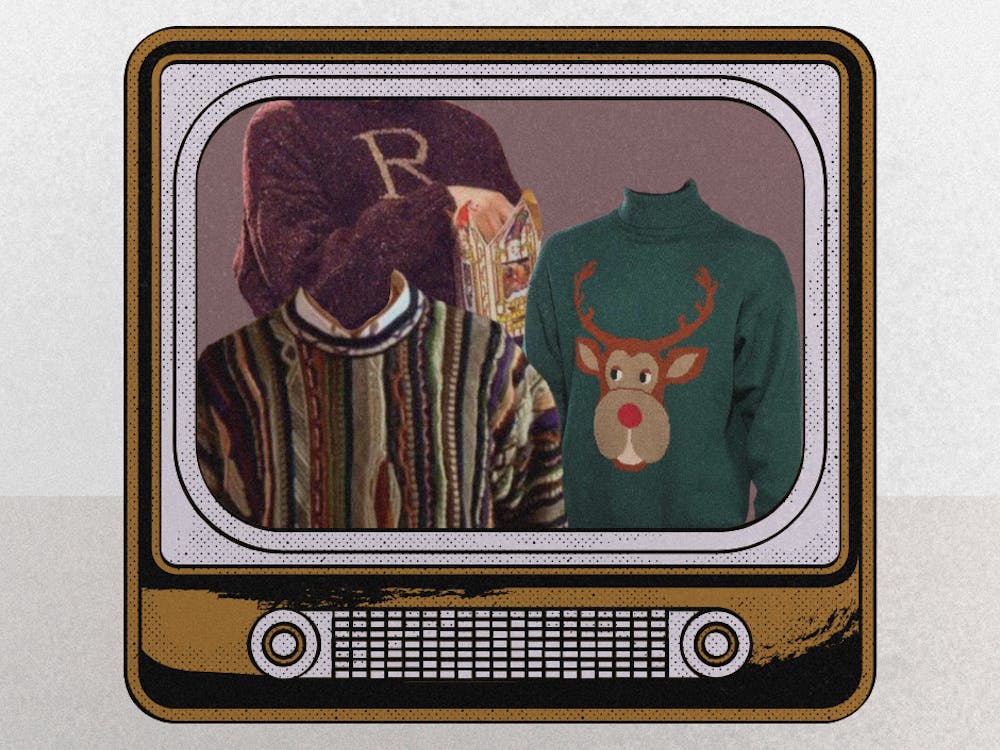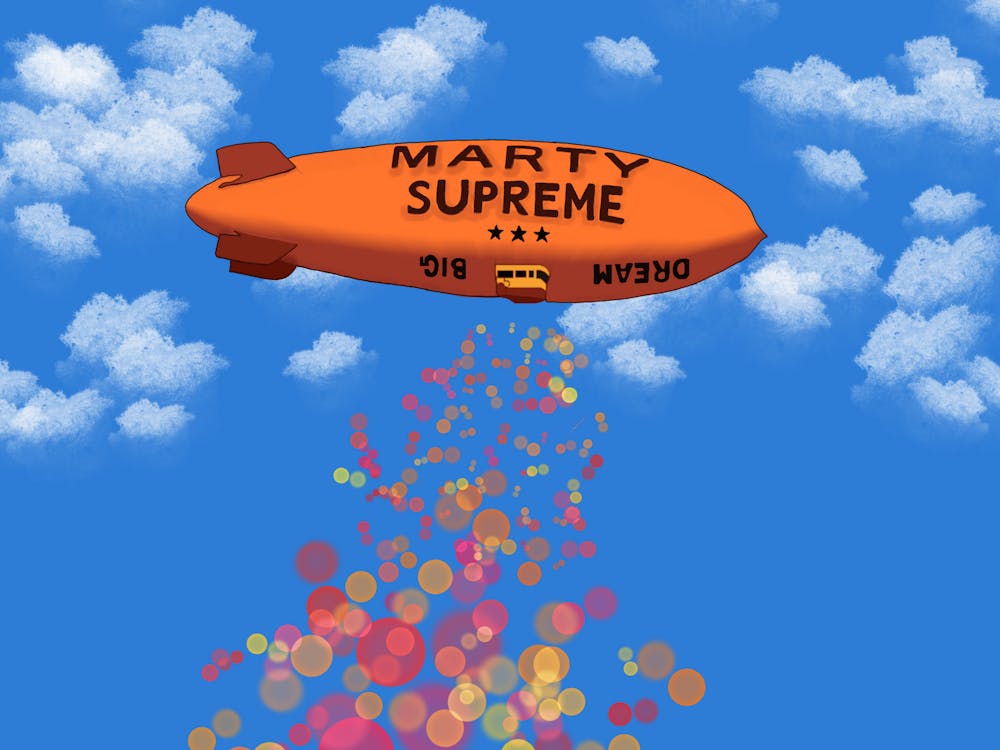Visionary musician Kanye West released his 10th studio album Aug. 29. This follows up his 2019 release “Jesus is King” — which saw West take a very drastic shift in his artistic direction as he went from primarily secular music to religious music. “Jesus is King” also came on the heels of yet another drastic shift seen with West in 2016 and 2018 as he expressed his support of former President Donald Trump.
For many years fans have been severely disappointed by how West portrays himself in the media and with the music he creates. On albums “Ye” and “Jesus Is King,” fans praised the sonic qualities of these albums but criticized the corny lyrics and the lack of strong messages that were characteristic of his earlier work.
Before the release of “DONDA,” West built up quite a bit of anticipation. The album was first confirmed July 20 in a Beats by Dre commercial. In the advertisement, a snippet of one of the new tracks, “No Child Left Behind,” played in the background as runner Sha'Carri Richardson prepared to sprint down a track. The commercial also announced that the album would debut on a July 22 Apple Music livestream and that the album’s official release date would be July 23.
However — Kanye being Kanye — the album was not released on that date. A second live event at Mercedes-Benz Stadium in Atlanta occurred — with no album release soon after. Finally, after the third live show at Soldier Field in Chicago the public was able to listen to the full album. So with all of this hype and excitement for West’s new album — how does it sound? The answer is ok, at best.
It’s important to recognize the two best aspects of the album — the production and the features. West started his career as a producer, so it makes sense that he is still able to create sonically beautiful music all these years later. Additionally, having Mike Dean, Boi-1nda and Gesaffelstein by his side certainly help. These producers have done masterful work previously and bring excellent production to “DONDA.” Dean and Gesaffelstein collaborate phenomenally on “Jesus Lord”— the haunting piano and gospel choir are beautiful in the background of the song. Boi-1nda’s fast-paced electro beat on “Ok Ok” allow for West and Lil Yatchy to create some of the best flows of their respective careers.
Some of the album’s highlights would have to be “Jail,” “Jesus Lord” and “Believe What I Say.” On “Jail,” a pounding electric guitar flows with the steady cadence of West and Jay-Z, while on “Jesus Lord” a beautiful, haunting piano creates the baseline. West takes a more upbeat route on “Believe What I Say,” which has an interpolation of Lauryn Hill’s “Doo Wop (That Thing).” Despite the album’s varied instrumentation, the overall production helps meld the secular and the religious. West includes influences from trap, drill and traditional while mixing in the sounds of spiritual and gospel music.
With an album containing 31 features— including ones from Jay-Z, Young Thug and Travis Scott — it can be hard to stand out. Many of the features are done extremely welll, with the best being The Weeknd on “Hurricane,” Don Toliver on “Moon” and Roddy Ricch on “Pure Souls.”
On “Hurricane,” The Weeknd gorgeously uses autotune to create a vocal sound that is almost christlike and provides some of the best lyrics on the album — “And I want you to see / I can walk on water / Thousand miles from shore, I can float on the water / Father, hold me close, don't let me drown I know you won't.” In fact, The Weeknd’s feature is so amazing that fans think he should drop his own gospel album.
“Moon” is a more secular track, but the quality is just as excellent as the gospel-inspired tracks. Don Toliver delightfully breezes over an electric guitar as he sings, “I wanna go to the moon, don't leave so soon (Don't leave so soon) / How could I get through? (How could I get through?).” The man on the moon himself — Kid Cudi — replies with some of his best vocals since “Kids See Ghosts.” Cudi’s best lines being “Angels, they say I'm not ever weak, such a lonely moment Heaven knows I might never sleep, trouble in my soul”
While there are a few shining moments, the album still feels like it never reached its true potential, mostly due to its lack of lyrical substance. West named the album after his mother Donda West, whose death drastically affected both his mental state and career — mentions of this can be seen on “808s & Heartbreaks,” “My Beautiful Dark Twisted Fantasy” and “The Life of Pablo.” So why is there only one song — “Come to Life” — on a 27-track album that directly references her? West scatters a few more abstract references throughout the album. Having more direct references to his mother could have enhanced the narrative behind the album — which is what it truly lacks.
Thematically, the album suffers from many of the same problems as “Jesus is King.” West simply informs listeners of how God guides him through life's challenges and triumphs, but he does not offer any critiques of Christianity. “DONDA” missed the mark in this respect, since interweaving religion with the issues of race, education, poverty, healthcare and gender could have made this album a masterpiece. Look at a song like “Jesus Walks” — West was not only able to create an amazing gospel track, but he was also able to critique how the record industry markets Black artists. Where is this level of analysis on “DONDA?”
It feels like West used to create albums with vision and purpose, but, unfortunately, he now just phones it in when it comes to the message behind his music. Of course he still has an amazing talent for production, but that's simply not enough — especially not for West, who is one of the most influential artists of the 21st century. Unfortunately, West’s gimmicks have caught up to his music once again, leaving a sonically pleasing but thematically disappointing album for listeners.







